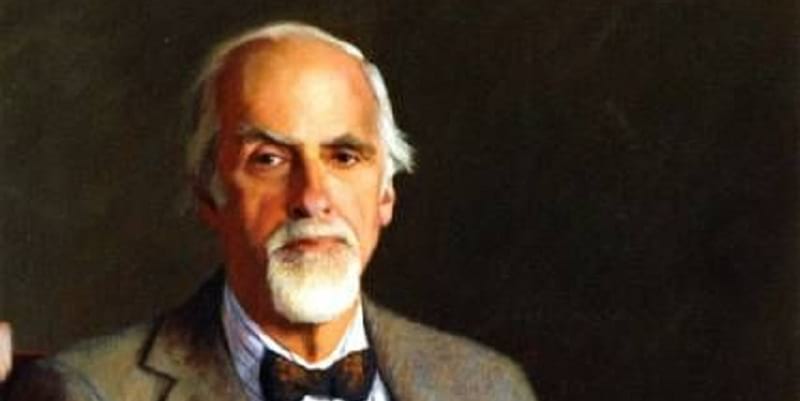David McClelland (1917 – 1998) fue un psicólogo, académico y científico estadounidense. Se hizo famoso con su trabajo sobre la motivación en la Teoría de las Necesidades.
Además de eso, basado en sus logros (investigación, desarrollo y muchos artículos científicos), David McClelland fue clasificado como el 15º psicólogo más citado del siglo XX.
Biografía de David McClelland
David McClelland se graduó en 1938 en la Universidad de Wesleyan para su grado en artes.
En 1939 se graduó de su maestría en la Universidad de Missouri. Finalmente, obtuvo un doctorado en psicología experimental en la Universidad de Yale en 1941.
Después de graduarse, enseñó 25 años en el Connecticut College y la Universidad de Wesleyan. En 1956 se unió a la facultad de la Universidad de Harvard. Además de dar tutorías, se desempeñó allí como presidente del Departamento de Psicología y Relaciones Sociales.
Su mayor motivación y tema de trabajo e investigación fue la personalidad y la aplicación de ese conocimiento para ayudar a las personas a mejorar sus vidas. Uno de esos desarrollos fue la teoría del valor de la expectativa de la motivación humana.
Otro tema popular de su trabajo fue el desarrollo de pruebas y métodos de operandos, como la prueba de apercepción temática, la entrevista de eventos conductuales y la prueba de análisis temático.
Su tercer tema fue el desarrollo de estudios de competencia laboral. Por último, pero no menos importante, fue el desarrollo de su cuarto tema. Este tema trata sobre la aplicación de esta investigación para ayudar a las personas y sus sistemas sociales, ya sea a través del desarrollo de la motivación, la competencia, el desarrollo de la organización y la comunidad, el cambio de comportamiento para combatir el estrés y la adicción.
David McClelland creía que si sabes cómo piensa y actúa un artista sobresaliente, podrías enseñarle a la gente a pensar y actuar de esa manera. Sus primeros proyectos abordaron el desarrollo empresarial y la capacitación en pensamiento y comportamiento de logros para propietarios de pequeñas empresas en India, Túnez, Irán, Polonia, Malawi y los Estados Unidos.
David McClelland fue premiado por sus distinguidas contribuciones científicas por la Asociación Americana de Psicología. Escribió varios libros, basados en sus trabajos, observaciones e investigaciones.
La mayoría de sus libros están relacionados con el logro y la motivación. The Achievement Motive y The Achieving Society son dos de los muchos otros libros y publicaciones. Murió el 27 de marzo de 1998.
Citas famosas de David McClelland
- “Understanding human motivation ought to be a good thing. It should help us to find out what we really want so that we can avoid chasing rainbows that are not for us. It should open up opportunities for self-development if we apply motivational principles to pursuing our goals in life.”
- “Whatever the source of the leader’s ideas, he cannot inspire his people unless he expresses vivid goals which in some sense they want. Of course, the more closely he meets their needs, the less “persuasive” he has to be, but in no case does it make sense to speak as if his role is force submission. Rather it is to strengthen and uplift, to make people feel that they are the origins, not the pawns, of the socio-political system.”
- “The outstanding people realized that the job involved more than just writing a good strategic plan. It was also important that top management should understand the plan and be prepared to adopt it.”
- “Outstanding American men seem to see power as something you use in order to correct someone who’s wrong, to change them, to show them you see more in this situation than the boss does. Outstanding American women, on the other hand, see power as a resource, something you can use to get people together, to gain commitment.”
Publicaciones y libros por David McClelland et al.
- 2015. Psychoanalysis and Religious Mysticism. Martino Publishing.
- 1998. Identifying competencies with behavioural-event interviews. Psychological Science, 9(5), 331-339.
- 1994. Competency assessment methods: History and state of the art. Hay/McBer Research Press.
- 1990. Cognitive versus traditional motivational models: irreconcilable or complementary?.
- 1989. How do self-attributed and implicit motives differ?. Psychological review, 96(4), 690.
- 1987. Human motivation. CUP Archive.
- 1987. Characteristics of successful entrepreneurs. The journal of creative behaviour, 21(3), 219-233.
- 1985. How motives, skills, and values determine what people do. American psychologist, 40(7), 812.
- 1982. Leadership motive pattern and long-term success in management. Journal of Applied psychology, 67(6), 737.
- 1980. Stressed power motivation, sympathetic activation, immune function, and illness. Journal of Human Stress, 6(2), 11-19.
- 1977. Social learning theory.
- 1976. The achievement motive.
- 1976. Power is the Great Motivator. Harvard business review, 54(2), 100-110.
- 1975. Power: The inner experience. Irvington.
- 1973. Testing for competence rather than for” intelligence.”. American psychologist, 28(1), 1.
- 1971. The achievement motive in economic growth. na.
- 1971. Assessing human motivation. General Learning Press.
- 1970. The two faces of power. Journal of international Affairs, 24(1), 29-47.
- 1969. Motivating economic achievement.
- 1967. Achieving society. Simon and Schuster.
- 1965. N achievement and entrepreneurship: A longitudinal study. Journal of personality and Social Psychology, 1(4), 389.
- 1965. Toward a theory of motive acquisition. American psychologist, 20(5), 321.
- 1965. Achievement-Motivation Can Be Developed. Harvard business review, 43(6), 6.
- 1962. Business drive and national achievement. Harvard Business Review, 40(4), 99-112.
- 1958. Methods of measuring human motivation. Motives in fantasy, action, and society, 7-42.
- 1948. The projective expression of needs: I. The effect of different intensities of the hunger drive on perception. The Journal of psychology, 25(2), 205-222.
Cómo citar este artículo:
Van Vliet, V. (2016). David McClelland. Recuperado [insertar la fecha] de Toolshero: https://www.toolshero.es/toolsheroes/david-mcclelland/
Agrega un enlace a tu sitio web:
<a href=”https://www.toolshero.es/toolsheroes/david-mcclelland/”>Toolshero: David McClelland</a>
¿Encontraste este artículo interesante?
¡Tu calificación es más que bienvenida o comparte este artículo a través de las redes sociales!
